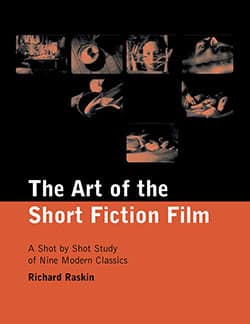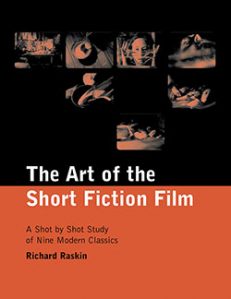The Art of the Short Fiction Film
A Shot by Shot Study of Nine Modern Classics
$35.00
In stock
About the Book
This work is the first of its kind to single out individual short fiction films for comprehensive presentation and close study. Two Men and a Wardrobe (Roman Polanski, Poland, 1958, 15 min.), Coffee and Cigarettes (Jim Jarmusch, USA, 1986, 6 min.), Sunday (John Lawlor, Ireland, 1988, 8 min.), Cat’s Cradle (Liz Hughes, Australia, 1991, 12 min.), Eating Out (Pal Sletaune, Norway, 1993, 7 min.), Come (Marianne Olsen Ulrichsen, Norway, 1995, 4.5 min.), Wind (Marcell Ivanyi, Hungary, 1996, 6 min.), Possum (Brad McGann, New Zealand, 1997, 14 min.), and The War Is Over (Nina Mimica, Italy, 1997, 7 min.) are the nine short fiction films studied.
The films represent a broad range of storytelling approaches and a number of very different film cultures. Each film has a chapter of its own, including a shot-by-shot reproduction of the film with a still from every shot. In most cases, an interview with the director and an original screenplay and storyboard is also included. The book also describes a new conceptual model, derived from the films studied in the work, which can be used both for analyzing the ways in which a short fiction film tells its story and as a set of guidelines for student filmmakers writing their own screenplays.
Instructors considering this book for use in a course may request an examination copy here.
About the Author(s)
Bibliographic Details
Richard Raskin
Format: softcover (8.5 x 11)
Pages: 196
Bibliographic Info: 960 photos, notes, appendices, bibliography, indexes
Copyright Date: 2002
pISBN: 978-0-7864-1183-2
eISBN: 978-1-4766-1612-4
Imprint: McFarland
Table of Contents
Table of Contents
Acknowledgments vii
Preface xi
Introduction 1
1. Two Men and a Wardrobe / Dwaj ludzie z szafa 5
2. Coffee and Cigarettes 36
3. Sunday 51
4. Cat’s Cradle 65
5. Eating Out 82
6. Come / Kom 96
7. Wind / Szél 108
8. Possum 119
9. The War Is Over / La guerra èfinita 150
10. A Conceptual Model: Seven Parameters for Story 165
Conclusion 173
Appendices 175
Bibliography 179
Index 183
Book Reviews & Awards
“finally a book devoted exclusively to short film”—Das Kurzfilmmagazin; “What a pleasure to see an unjustly ignored form of cinema treated with such care and creative imagination! Blending careful analysis, historical background, and a rich array of archive materials, Richard Raskin reveals in unprecedented detail how short films tell their stories. Raskin’s study should become the definitive work on the subject.”—David Bordwell, Jacques Ledoux Professor of Film Studies, University of Wisconsin–Madison.





